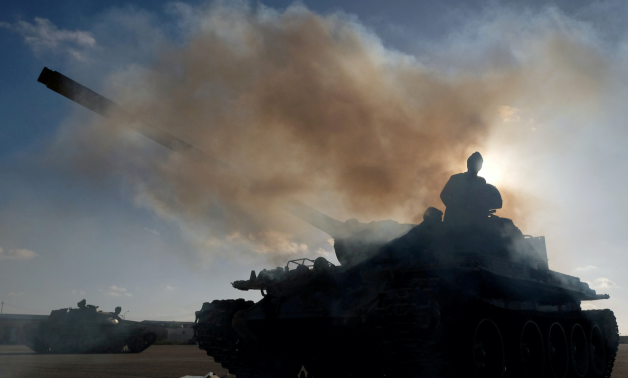
Members of Libyan National Army (LNA) commanded by Khalifa Haftar get ready before heading out of Benghazi to reinforce troops advancing to Tripoli, in Benghazi, Libya. REUTERS/Esam Omran Al-Fetori/File Photo
CAIRO - 30 November 2020: More than 120 Libyan deputies in Morocco announced, Saturday, to move forward towards "ending the division" in the country, provided that the implementation of the principle will create with a parliamentary session upon return to Libya, according to a final statement.
Mediations seeking to get the country out of the crisis have continued for months, while a ceasefire agreement was signed between the two parties to the conflict in late October.
After five days of talks in Tangiers, in northern Morocco, 123 out of 180 deputies declared their commitment to abandon "hate speech" and put an end to the division that undermines all Libyan institutions.
In a final statement, the participants indicated "commitment to holding parliamentary elections and ending the transitional phase as soon as possible," highlighting "an agreement to hold a parliament session in Ghadames upon return to Libya."
Moroccan Foreign Minister Nasser Bourita said that the participation of 123 deputies in this consultative meeting "is a clear success."
He added that Libya needs a parliament that plays a role in political life, considering that the next session in Libya will have a major impact on the political dialogue.
In mid-November, it was agreed during a session of the Forum for Political Dialogue in Tunisia under the auspices of the United Nations that elections would be held on December 24, 2021; however, the parties have not agreed on the names of who will hold the key positions during the transitional period.
Oil-rich Libya has been mired in chaos since the ouster and killing of Muammar Gaddafi in 2011. It now has two rival authorities and a multitude of militias vying for control of the country.
The country’s internationally recognised government is based in Tripoli, while Khalifa Haftar, the commander of the Libyan National Army, is supported by a parallel administration based in the east.

Comments
Leave a Comment